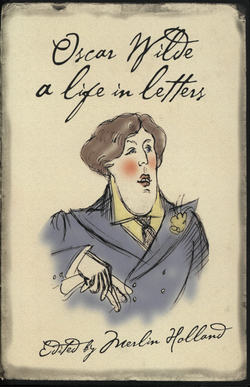Читать книгу Oscar Wilde: A Life in Letters - Оскар Уайльд, Merlin Holland, F. H. Cornish - Страница 97
To W. A. S. Benson
Оглавление[16 May 1885] 16 Tite Street
My dear Benson, I don’t at all agree with you about the decorative value of Morris’s wallpapers. They seem to me often deficient in real beauty of colour: this may be due as you say to his workmen, but Art admits of no excuses of that kind. Then as regards the design, he is far more successful with those designs which are meant for textures which hang in folds, than for those which have to be seen flat on a stretched material: a fact which may be due to the origin of many of his patterns, but which is a fact still.
Setting aside however a point on which we were sure for obvious reasons to disagree, I am surprised to find we are at such variance on the question of the value of pure colour on the walls of a room. No one I think would paint a room in distemper entirely: for the ceiling and the upper part of the wall distemper is excellent, for the lower part (as for the woodwork) one uses oil paint which has the great advantage of being cleanable, if there is such a word.
Nor are the colours one gets in distemper and oils necessarily spoiled by the introduction of silk embroideries or oil pictures. These things depend entirely on the scheme of colour one selects for the room, and on one’s own knowledge of colour harmonies. I have for instance a dining-room done in different shades of white, with white curtains embroidered in yellow silk: the effect is absolutely delightful, and the room is beautiful.
I have seen far more rooms spoiled by wallpapers than by anything else: when everything is covered with a design the room is restless and the eye disturbed. A good picture is always improved by being hung on a coloured surface that suits it, or by being placed in surroundings which are harmonious to it, but the delicacy of line in an etching for instance is often spoiled by the necessarily broad, if not coarse, pattern on a block-printed wallpaper.
My eye requires in a room a resting-place of pure colour, and I prefer to keep design for more delicate materials than papers, for embroidery for instance. Paper in itself is not a lovely material, and the only papers which I ever use now are the Japanese gold ones: they are exceedingly decorative, and no English paper can compete with them, either for beauty or for practical wear. With these and with colour in oil and distemper a lovely house can be made.
Some day if you do us the pleasure of calling I will show you a little room with blue ceiling and frieze (distemper), yellow (oil) walls, and white woodwork and fittings, which is joyous and exquisite, the only piece of design being the Morris blue-and-white curtains, and a white-and-yellow silk coverlet. I hope, and in my lectures always try and bring it about, that people will study the value of pure colour more than they do. The ugly ceilings of modern houses are often due to the excessive use of wallpapers, and I do not think Morris himself sets the exaggerated value on wallpapers which you do.
Anybody with a real artistic sense must see the value and repose of pure colour, and even taking the matter in a practical light, wallpapers collect dirt and dust to a great extent and cannot be cleaned. They are economical and often pretty and charming but they are not the final word of Art in decoration by any means. I hope they will be used much less frequently than they are, and that Morris will devote his time, as I think he is doing, to textile fabrics, their dyes and their designs, and not so much to a form of wall decoration which has its value of course, but whose value has been overestimated, and whose use is often misunderstood.
I saw Frank at Oxford: there was a charming performance, and lovely costumes: he seemed very pleased at it and so was I. Believe me, very truly yours
OSCAR WILDE
How can you see socialism in The Earthly Paradise? If it is there it is an accident not a quality—there is a great difference.
The first of Wilde’s children, Cyril, was born on 5 June. Nellie, who was married to Constance’s brother Otho, gave birth later in the month. After Wilde was released from prison Otho stayed in touch with him and was the least judgemental of Constance’s relations.
